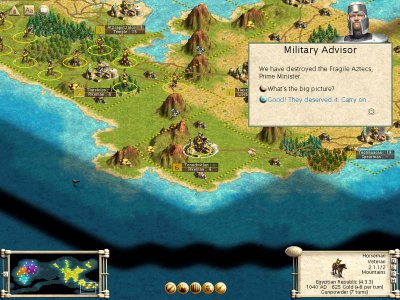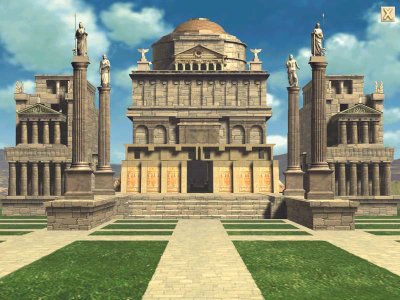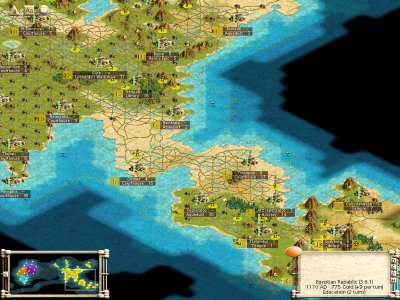And so came the rule of HoHumTep in the late 13th and early 14th century. I was going to do a write-up, but I remembered that I had done an essay on the rule of HoHumTep in a 5th grade History class.
Kevin Dunn
5th Grade
Mr. Audubato
History
The Rule of HoHumTep
HoHumTep, historians tell us, ruled Egypt from 1280-1350 A.D. It has been said that nothing of note took place during this pharaohs reign. When compared to the militaristic HoHoTep and the mysterious pharaoh who took Egypt into their first Republic, HoHumTeps reign was not so full of activity. However, if one looks closely at the events that occurred during this period of time, one can see the many benefits that this wise and peaceful ruler brought to his people and his country.
It began in 1280 when HoHumTep maneuvered himself into the seat of leadership. The ancient Egyptians still believed that their leaders had to be deities themselves, and amazingly enough HoHumTep was able to do a few card tricks and convince the people of his godly nature. Once upon the seat of power and head of the Republic, he did great things for his people. The first was to lower the amount of money that was being used for scientific research. While inventions would still come at the same rate of time, HoHumTep was able to bring much needed monies into the Egyptian coffers as well. The war with the Aztecs had been over for some time, but the newly acquired cities badly needed some improvements to become useful contributors to society at large.
HoHumTep is also responsible for the building of several cities. During his reign he noted that several cities would not grow past a certain size as they all died off after a certain level. While he could not correct this situation with the technology available, he was able to gather surplus citizens and have them settle in areas that were heretofore unused. In 1305, the city of Asyut was built, in 1330 Avaris was built, and finally in 1345 (5 years before his death), the city of Kevs Canal was completed. Kevs Canal is still an important city today as it allows a great deal of shipping to cross the Egyptian-Aztec isthmus. An additional group of settlers was en route to its destination, but HoHumTep was never able to see what became of them.
HoHumTep was a very accomplished trader, and he made several lucrative deals for his people with other civilizations at the time. In 1350, he raised the prices of furs to the Iroquois from 3 gold per year (turn) to 6 and the price of incense from 4 to 7. In 1325 he saw the creation of Bachs Cathedral, and then sold the Theory of Music to several civilizations. The Germans gave him 4 gold per turn and 60 gold while the English gave him 5 per turn and 20 gold. The kindly Egyptian ruler then looked kindly upon the lowly Germans. The Iroquois were beating up on them so HoHumTep sold them horses for a mere 1 gold per turn and then gifted them iron in hopes that they would be able to halt, or least slow, the advancing Iroquois.
HoHumTep was enlightened, and strove toward many discoveries all of which were discovered in minimal time and with slight tweaking of numbers to be sure of maximum cash flow as well. In 1290, the printing press was discovered and HoHumTep used it to begin the Daily Papyrus. In 1305, Banking was discovered which led to long teller lines. In 1325, Democracy, arguably the most important of the Egyptian discoveries of this time, was conceived and put into immediate practice. The New Egyptian Democracy (NEG) was established, and HoHumTep would allow the people to vote in their new leaders
after HE was finished ruling for life. Voting cards with CHADS in them began to be made at this time. When HoHumTep died in 1350, his people were on the brink of discovering chemistry.
Through all of this, HoHumTep did not lose sight of possible future military objectives. While still building many improvements (like sorely need aqueducts and libraries), he set many cities to training knights. Later, when the technology presented itself, he knew that these knights could be further trained into something even greater. Further, HoHumTep gave many pikemen and spearmen guns and renamed them musketmen - then added on to several galleys to make them larger and called them caravels.
It was a sad day in Egypt when HoHumTep finally succumbed to boredom and just wasted away. Elections, for the first time, were to be held, and the Egyptians seem to be taking a more militaristic bend on their technology so there was little time for mourning. This great civilization stood on the brink of domination, and from his great funeral hall in the Pyramid at Thebes would HoHumTep watch his beloved people flourish.
OK, guys. Not bad for a 5th grader, huh?
Anyway, we rule this game. Its up to someone to finish it, and I doubt Ill even get another turn at this one. Im thinking that the science should go chem. à metallurgy à Military Tradition. It should take 9 turns to get all three of these as Chemistry in one turn away. By that time well have a good deal of knights and can have cavalry next turn. The other civs are pathetic. Other than ourselves, only the Americans have saltpeter (one source that I can see), and the Germans and Greeks dont even have iron. Well have 4 caravels soon enough, and could probably even wait for Galleons if you wish. Whatever the case, no one will stand against us.
Have fun!




 I never was the Egyptians yet. The civil disorder, I thought the governors were on..... oops. ctually I only played 10 turns! 2 leaders in ten turns:crazyeyes
I never was the Egyptians yet. The civil disorder, I thought the governors were on..... oops. ctually I only played 10 turns! 2 leaders in ten turns:crazyeyes